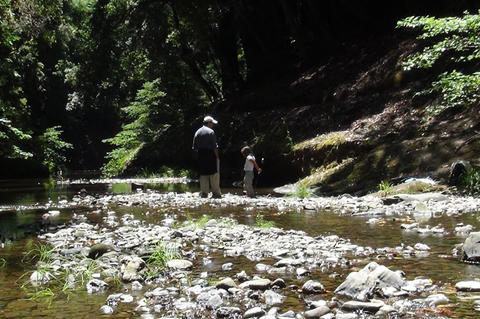
This weekend, we unplugged.
We packed up our car with a brand new Kelty tent, a dozen eggs, three hiking poles, a bar of organic chocolate, and headed for the hills.
An hour of winding road later we were in the middle of a redwood forest.
We stayed only for the weekend, enough to recharge but nowhere near enough. You can never get enough of sacred spaces, or sacred time. And yet, no matter how little you do get, it's always so rich and so fulfilling you can go for months on it.
(I need to figure out how to package that up and sell it at the farmer's market!)
There were lots of other campers and hikers in the park, which can be great if you're not into solitude or if you're worried about the potential mountain lion tracking you down. Not so great if you are into solitude and communing with nature. We were with two other families, all of us with kids, so either way would have been just perfect.
Personally, I love solitude. I can't help it; I'm a writer. Silence and solitude are what fills a writer's soul; ripe grapes to ferment into a fragrant storyline. I'm also a natural daydreamer, which means I can easily tune out repetitive or background noise—including hordes of loud vacationers with screaming kids (ours were perfectly well behaved of course).
That's how you find sacred time, anywhere, anytime. Talking forces you to hone in on a string of words, a line of thought; process it; and respond with another string of words, at the very least a grunt to acknowledge the person talking to you. Not talking opens up an entire world of perception and sensation that comes at you from all directions all at once, as well as thoughts—but the kind of thinking you do when you're not speaking is much more expansive, much more all-encompassing and much more non linear.
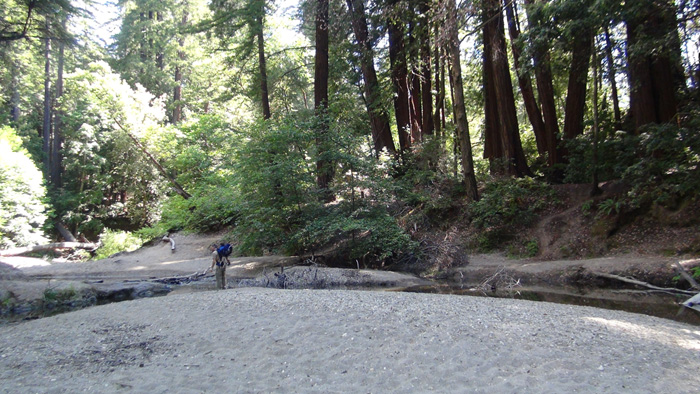
In a little creek meandering through the park, the same creek other families either threw stones into or simply crossed on their way along a prescribed trail, we found treasures no one else saw. Tiny trout hatchlings, a dragonfly nymph (see below), lots of water skippers and a beautiful, big, healthy crawfish. Even in a drought, in water a mere few inches deep, life flourishes.
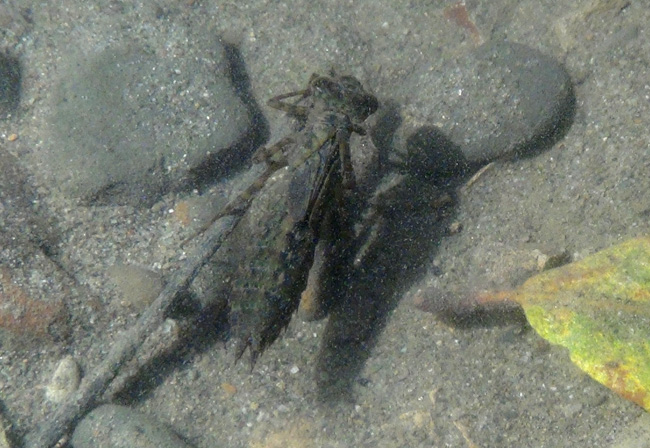
Here are two of our group's little ones having a great time in the creek.
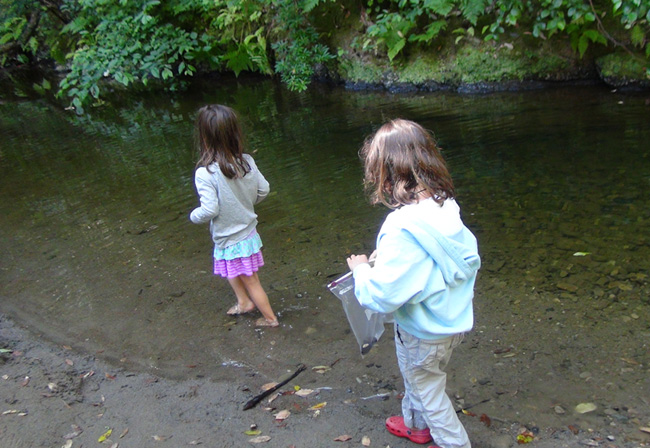
Dragonfly nymphs and crawfish sufficiently admired, our group wound its way across the creek and up a trail that took us past the "Largest Tree" in the park—a majestic redwood that's sixteen hundred years old. Think about that. Sixteen centuries. That means it germinated around 415 A.D. Can you imagine what California was like back then?
We took the time to spend a few moments with this Elder. Its massive trunk stretched into the stratosphere; you had to crane your head all the way back to see the canopy. My camera lens wasn't anywhere wide enough to take in all of this tree, so I did a few tilting video captures.
But this was the moment when a portion of my novel about the history of chocolate that I'm working on came to life. There are several passages in the book that talk about redwood trees, and a cacao tree that's a thousand years old. So to come face to trunk with a living breathing tree that's even older... well there are just no words. I stood there transfixed in the presence of this awe-inspiring form of life while the engineers in our group discussed the possible techniques for dating a tree without actually cutting into it to see its rings.
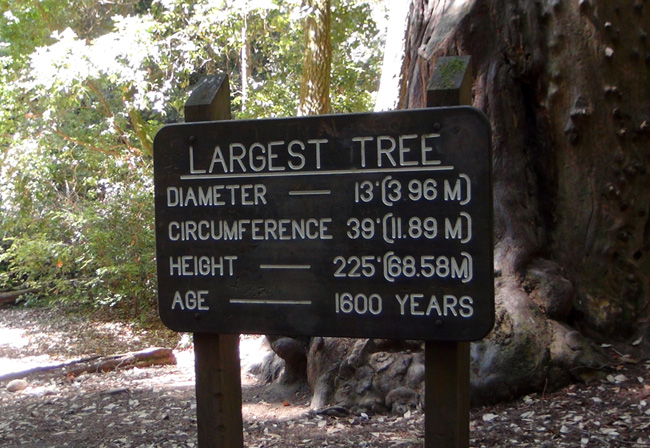
The next morning we packed up, but on the way to the exit gate we "got lost" and wound up in the day parking lot and spent a few hours at the creek again. I had no desire to return to civilization, even though I was still technically in it. The beautiful thing about Silicon Valley is that you can leave the high tech world behind anytime you want. An hour's drive will take you to some seriously stunning scenery (how's that for quadruple alliteration!).
By the way, I did get some writing done. At dawn on Sunday, the last day, I stepped outside of our tent as the first rays began to push their way through the cloud cover and settled into a blessed hour of writing—no laptop or tablet, just me, my pen and a pad of paper, and the melodies of songbirds in the treetops.
Sounds idyllic doesn't it? Writing a novel out in the middle of the wilderness. But here's the thing about writing. Writing, fiction especially, pulls you out of wherever you are and into its own world. My personal advice for writing in the great outdoors: less is more. As in, less writing now is more writing later.
In other words, spend most of your time soaking in the sights and sounds all around you. Be one, as they say, with the natural world, all of it. It'll seep into your subconscious and resurface when you need it for your story, or simply for inspiration. And then it won't matter where you are.







